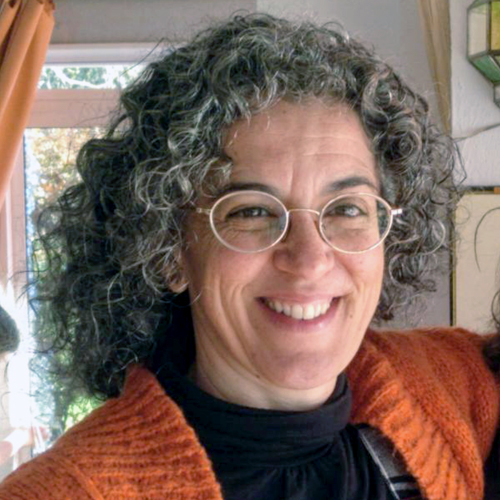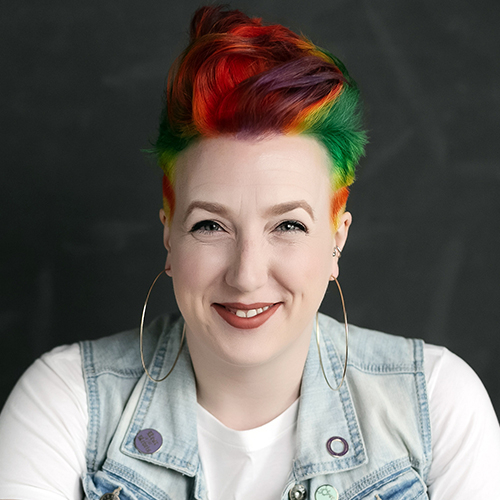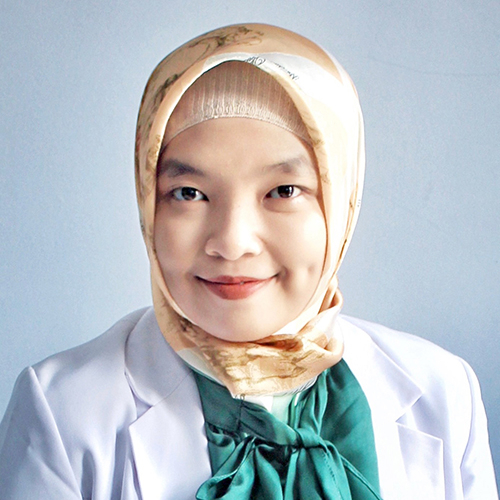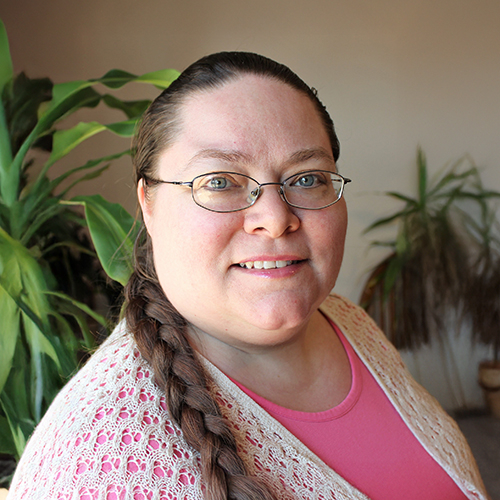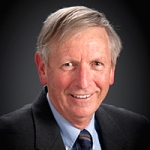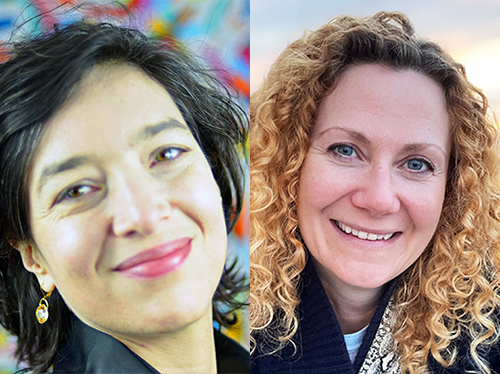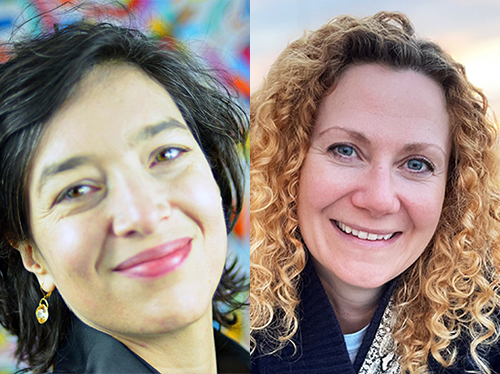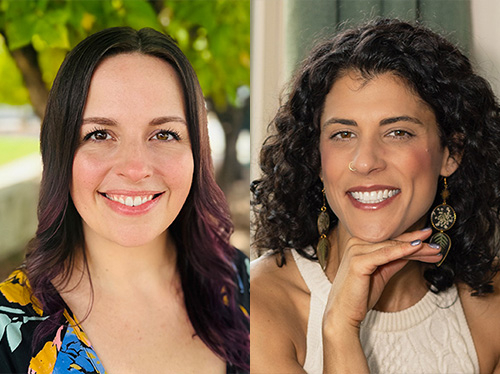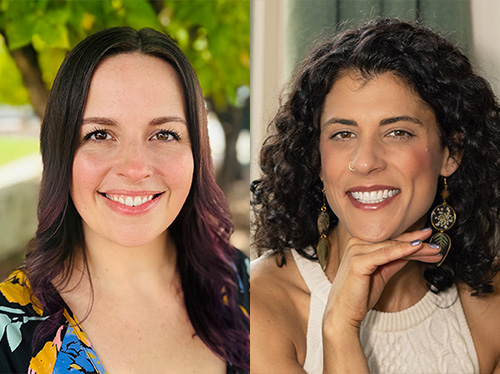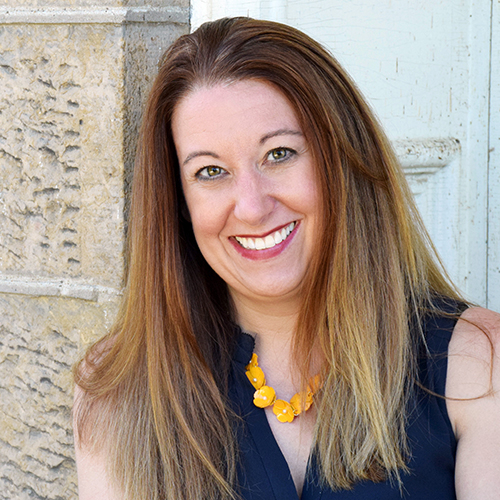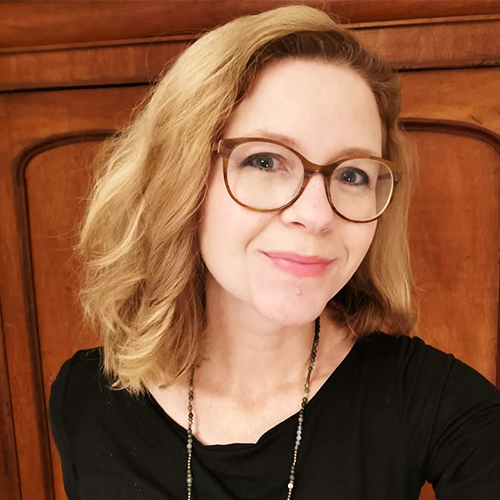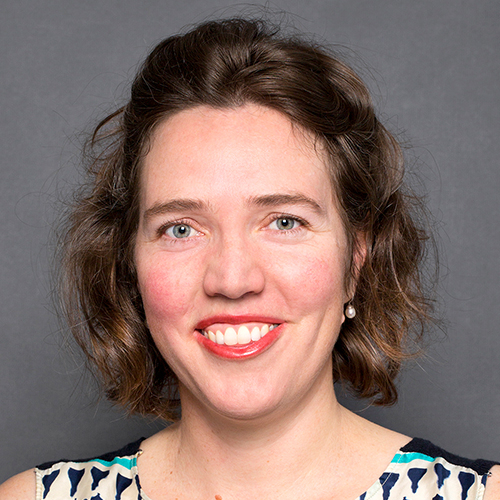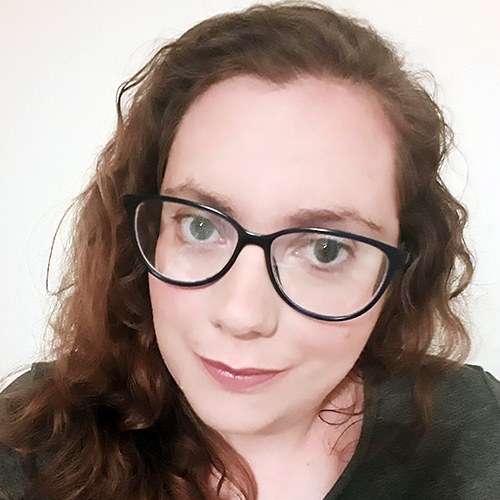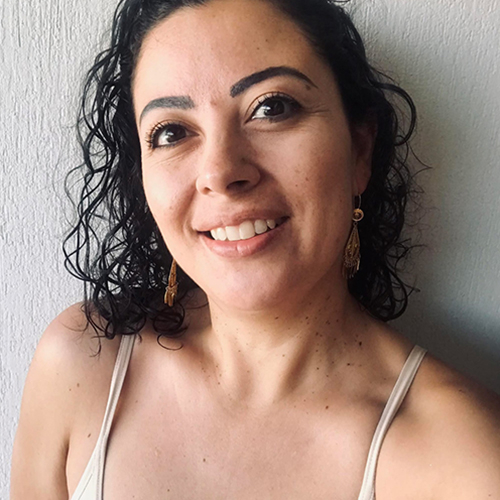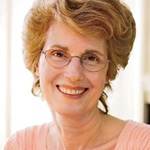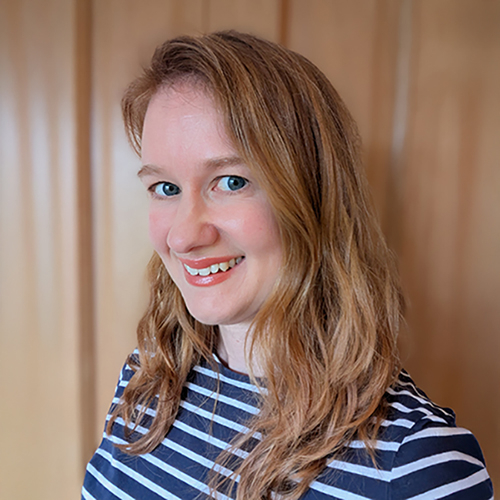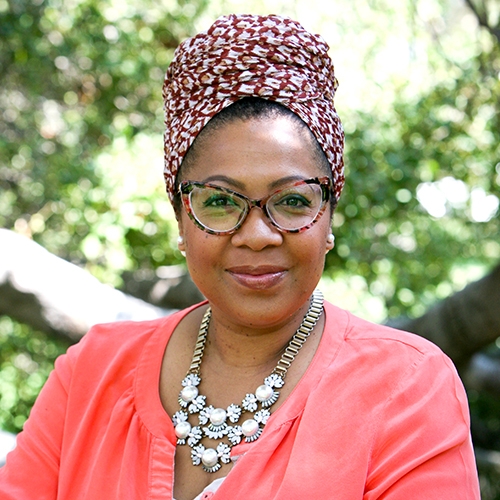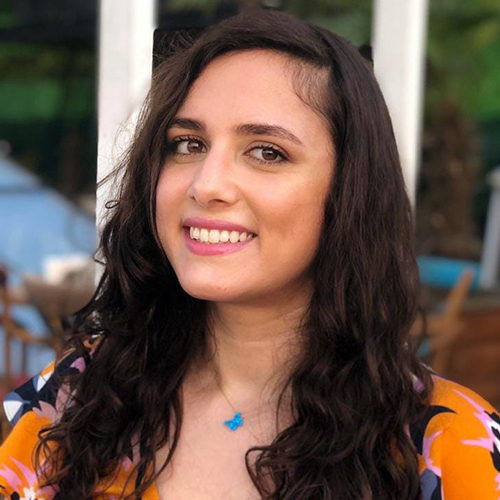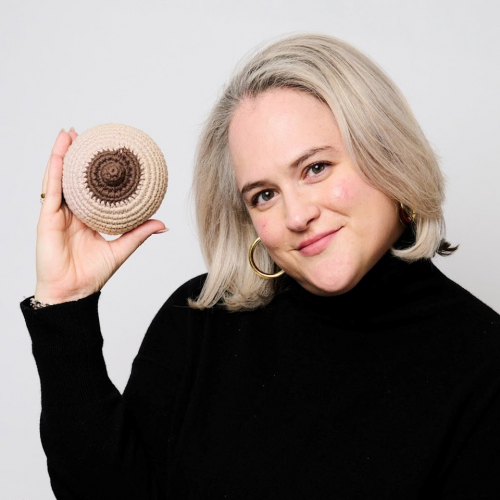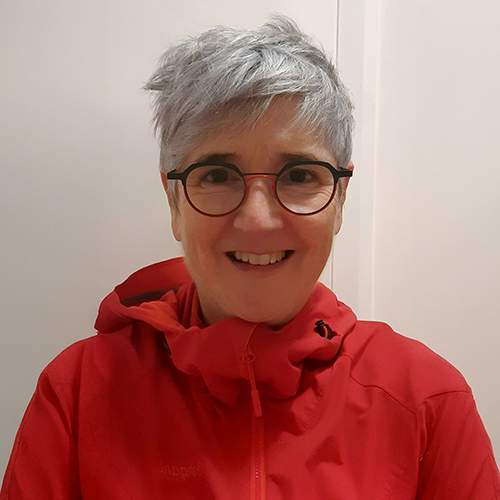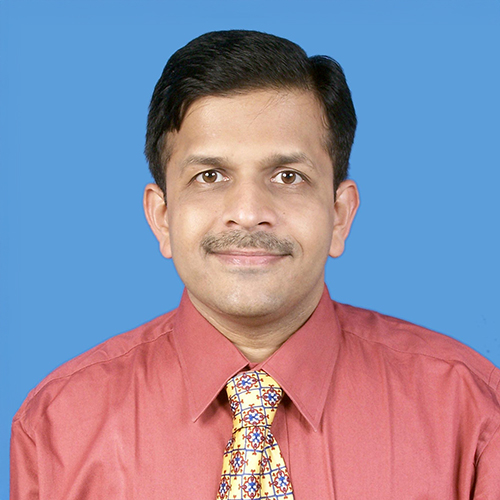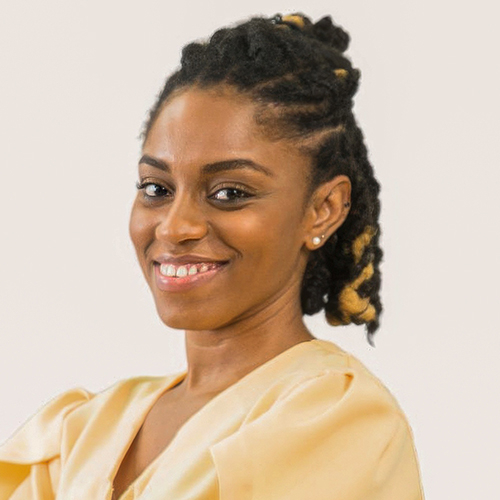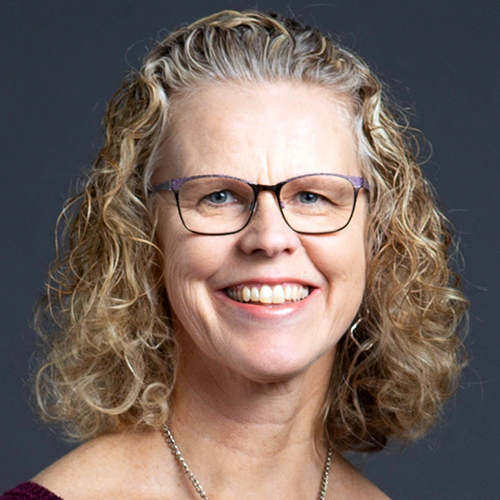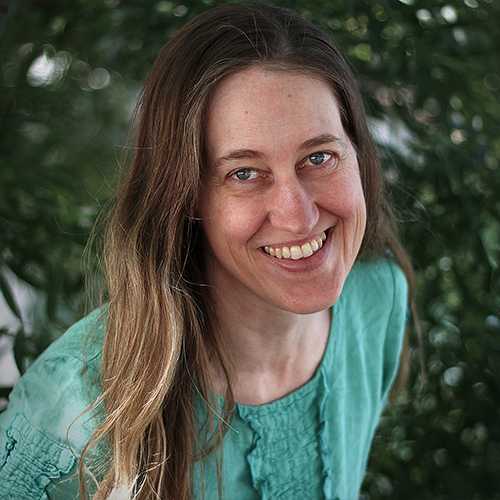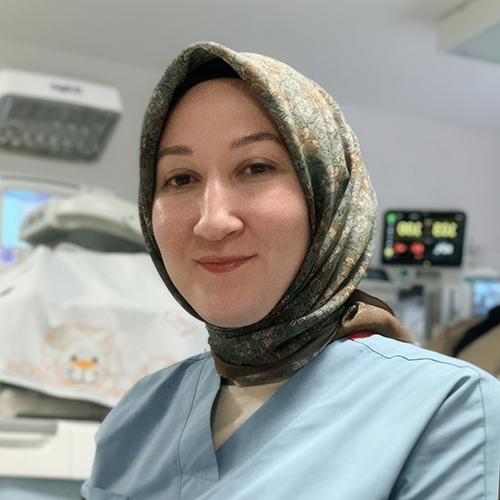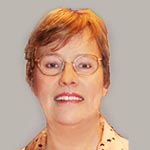 Conference Speakers
Conference Speakers
Every year, leading clinicians and researchers from the field of lactation around the world present their invaluable education through our unique online learning system. Our Director of Educational Programming, Fleur Bickford BSc, RN, IBCLC and Program Chair Melissa Cole, MS, IBCLC, along with our Professional Advisory Committee, review abstracts and invite Speakers to present on topics that are the most relevant to breastfeeding support providers. We're proud to offer you a full spectrum of education, including current research, clinical skills, case studies, advocacy and ethics.
We are pleased to present the line-up of main speakers below for our GOLD Lactation Online Conference 2026! These speakers have been selected by our program committee to ensure we are bringing you the most up to date and relevant content that we can. Click on the topics below to review further details on each presentation.
This yesr, we will be offering a 28.5 hours of education.
Join our newsletter to stay in touch and receive updates on upcoming Speakers and their topics.
Carmela is a medical doctor and family physician. After the very unsuccessful breastfeeding experience with her first child, who had a congenital heart defect, she realized that her medical training had been completely lacking in the field of lactation. In 2003 she decided to become an IBCLC and specialize in breastfeeding medicine. Since then she works in a Family Wellness Clinic in Madrid (Spain), in charge of the Breastfeeding Department, offering consultations to nursing families. In 2018 she began to collaborate with the European Institute of Perinatal Mental Health, coordinating and teaching in the Breastfeeding and Mental Health training programs for healthcare professionals.
The breast is a wonderful organ, rich in innervation and hormonal receptors, and therefore highly sensitive. The lactation period is one of maturation and intense organ activity where the breast is exposed to potent physical and emotional stimuli – both positive and negative. For many women the lactation journey is a persistently painful experience. What are the basic tenets of current pain neuroscience, and how can they help us support breastfeeding dyads who are in distress due to persistent pain?
Charlotte Treitl, widely known as "The Milk Rebel," is a powerhouse in the world of lactation and infant feeding advocacy. As an International Board Certified Lactation Consultant (IBCLC) and Clinical Lead for Parenting at Anya, Charlotte is on a mission to revolutionise breastfeeding support—making it accessible, inclusive, and empowering for all families. With a decade of experience, Charlotte’s expertise spans from peer support and grassroots activism to clinical leadership and championing policy change. She provides personalised, evidence-based guidance, helping parents confidently navigate breastfeeding, chestfeeding, and human milk provision. At Anya, she spearheads the development of cutting-edge, research-backed resources to support families through the challenges of early parenthood. But Charlotte is more than just a lactation specialist —she’s a rebel with a cause. She fights for those without a voice or influence, advocating for systemic change to ensure breastfeeding support is a right, not a privilege. A fierce intersectional feminist, Charlotte isn’t afraid to shake up the status quo. She’s loud, a little sweary, and unapologetically passionate about improving health outcomes for families worldwide.
They’ve got a ring light, a discount code, and absolutely no qualifications. Welcome to the algorithm-driven circus of influencer parenting—where misinformation goes viral, bottle deals get more airtime than public health, and the quiet, messy reality of breastfeeding is filtered beyond recognition.
In this no-holds-barred session, we take a critical look at how influencer culture is reshaping parenting norms and undermining breastfeeding support. From cherry-picked journeys and aesthetic overshares to sponsored content pushing formula, bottles, and breast pumps, influencers are being treated as experts—and families are paying the price.
We’ll explore how wealth and privilege allow some influencers to access high-quality lactation care—only to ignore it or exploit it for brand deals. We’ll examine how media illiteracy leaves followers unable to separate evidence-based guidance from curated content. Crucially, we’ll highlight how commercial interests use influencers to circumvent the WHO Code, pushing marketing through back doors disguised as personal stories.
This is a call for critical thinking, better boundaries, and a media-savvy approach to lactation support in a world that’s drowning in sponsored noise.
Dr. Dyah Febriyanti, MD, IBCLC, FABM is a medical doctor and lactation consultant/ breastfeeding counselor, and a mother living in Jakarta, Indonesia. She has been working in hospitals since she graduated in 2012. She was facing many struggles to succeed in breastfeeding her daughter for two years. She has been an IBCLC since 2017.
She works with breastfeeding dyads in a lactation team consisting of all lady doctors in outpatient and inpatient care units. Concerning breastfeeding and nutrition in early life, she has published a semi-cookbook about complementary foods for breastfed babies and cooking videos to educate and help mothers feed their babies. She also has been working on scientific writing. She is a member of the International Lactation Consultant Association and a trainer of the Indonesian Society of Perinatology. She also is a Fellow of the Academy of Breastfeeding Medicine (FABM).
Breastfeeding is far more than a means of nutrition—it is a biologically orchestrated, emotionally charged process that supports the infant’s neuromotor development, orofacial growth, and emerging sense of safety. This presentation explores how direct breastfeeding activates and integrates primitive oral reflexes—such as the suck-swallow-breathe synchrony—and facilitates the transition from brainstem-driven patterns to mature, cortically mediated oral motor function.
This presentation highlights the central role of the vagus nerve in this process, showing how direct breastfeeding uniquely stimulates parasympathetic activity, promoting emotional regulation and co-regulation within the mother-infant dyad. Disruptions in reflex integration or vagal tone—often linked to conditions like tongue-tie or ineffective latch—can contribute to feeding challenges, infant distress, and interrupted bonding.
By emphasizing the neurobiology of attachment, this session underscores the irreplaceable value of direct breastfeeding in shaping not only oral function but also the psychological bond and long-term health outcomes for both infant and mother. Attendees will leave with evidence-based insights and practical strategies to support the maturation of oral motor pathways, optimize feeding, and foster deeper relational attunement in early life care.
Erinn Tanguay, IBCLC, is a private practice lactation consultant based in Northeastern Connecticut, USA. She is the current Secretary and a founding member of the Association of Connecticut Lactation Consultants, and a past Chair of the Connecticut Breastfeeding Coalition. Erinn is engaged in several ongoing lactation research projects and facilitates a comprehensive IBCLC exam prep and study group to support future lactation professionals.
Her passion for lactation support began in 2008 with the birth of her first child and has since grown into a career rooted in both personal experience and professional advocacy. A parent of four and a former human milk donor to five additional infants, Erinn brings a deeply informed, compassionate approach to her work. Prior to earning her IBCLC credential, she worked in Human Resources, where she developed a strong commitment to supporting lactating families in the workplace.
Erinn is especially passionate about mentorship, equitable access to lactation support, and strengthening professional networks within the lactation field. In her free time, she enjoys reading, gardening, cooking, and spending time with her husband of 22 years, their four children, and three rescued cats. She lives by the motto: “If it’s broken, fix it. If it doesn’t exist, build it.
Every feeding journey is shaped by a story. Behind the clinical signs and symptoms, families bring histories that reveal crucial clues for understanding lactation challenges and guiding care. Taking a thorough, compassionate clinical history is more than an intake form—it is the foundation for effective assessment, decision-making, and building trust and relationship with clients.
This presentation explores how history-taking unlocks breastfeeding outcomes by blending the art of listening with the science of assessment. Key elements of maternal and infant histories—including medical, psychosocial, and cultural factors—will be reviewed. Case examples demonstrate how small details in a family’s story can change the clinical picture, prevent misdiagnosis, and lead to tailored care plans that are sustainable for a family's individual needs.
Participants will leave with practical strategies and validated tools for integrating history-taking into lactation practice. By honoring client stories and using them to inform clinical reasoning, lactation professionals can transform care encounters into opportunities for deeper understanding and more successful feeding outcomes.
Dr. Frank J. Nice has practiced as a consultant, lecturer, and author on medications and breastfeeding for over 50 years. He holds a Bachelor’s Degree in Pharmacy, a Master’s Degree in Pharmacy Administration, Masters and Doctorate Degrees in Public Administration, and Certification in Public Health Pharmacy. He retired after 43 years of government service, including 30 years of distinguished service with the US Public Health Service, 29 years at the National Institutes of Health; and five years at the Food and Drug Administration. He currently is self-employed as a consultant and President, Nice Breastfeeding LLC and President, Dr. Nice Products LLC.
Dr. Nice has authored ten books; over four dozen peer-reviewed articles on the use of prescription medications, recreational drugs, Over-the-Counter (OTC) products, and herbals during breastfeeding; in addition to book chapters. As part of his pharmacy advocacy work, he has researched the use of power, epilepsy treatments, medical missions, work characteristics of healthcare professionals, and health disparities in underserved populations, He has organized over 70 medical missions to Haiti and has been on the ground in Haiti 24 times. During his time in Haiti, Dr. Nice founded and continues to support a school and orphanage for 550 students, including over 50 live-in orphans. Thirty-six of the students and orphans now have had the opportunity to go to universities in Haiti. These students are the hope for Haiti in their divisive times.
When a breastfeeding mother uses any form of medication, the ingredients can pass to her infant through her breastmilk. Even if the medication is entirely safe for an adult, there may be harmful consequences for an infant. The use of a nonprescription or over-the counter (OTC) medication does not require professional approval. Individual consumers usually make their own decisions about using nonprescription medications or other commonly available health and recreation products. Choosing a medication or other product, especially while breastfeeding, is not as simple as it seems. The labels for OTC products, though vitally important, do not tell you if a medication is safe for breastfeeding. It can be all too easy to unintentionally use something harmful.
The use of nonprescription or over-the-counter medications by breastfeeding mothers is more common than the use of prescription drugs. The sale and use of these products is a $37 billion industry. Nine out of every ten Americans use OTC medications regularly, which equals over 260 million users. This presentation will provide basic guidelines that can help breastfeeding parents determine which nonprescription products are safe to use. The information covered provides simple, clear answers to help breastfeeding families choose safe and effective products for every health need.
Gayle Subramaniam is a lactation consultant, educator and author. She has over 15 years experience in commodities research where, as chair of research teams, she has written, produced, and presented research internationally. Gayle is an Associate Fellow at the Centre for Breastfeeding Education and Research (CBER), delivering lactation education internationally in preparation for the IBLCE exam and publishing peer-reviewed research. She is also an Associate Editor with the Journal of Human Lactation (JHL). Gayle has a small private practice in London, UK, and is a clinician with the UK National Health Service (NHS) providing lactation care to families.
Indira Lopez-Bassols has dedicated the past 19 years to birth and breastfeeding support. She has been an International Board Certified Lactation Consultant (IBCLC) for 14 years and currently work as a clinician, educator and researcher.
As a clinician IBCLC, she has been in charge of the Specialist Breastfeeding Clinic (Central London Community Healthcare NHS Trust) for complex breastfeeding dyads for the past 7 years. Her leadership contributed to the clinic's recognition of the 2023-25 IBCLC Community-Based Care Award and UNICEF BFI Stage 3 Gold accreditation.
As the Director of the Centre for Breastfeeding Education and Research, she created the Art and Science of Breastfeeding Course, a 1 year-long in-depth training for future IBCLCs. It has over 700 alumni from all over the world.
As a researcher, she is currently doing Doctoral studies within the Mother, Infant and Child Health research group (MIRU) in the School of Health Sciences at Dundee University. Her PhD examines why IBCLC training matters: experiences, motivation and a professional identity
She created and serve in her voluntary capacity the International Research Hub. This is an online free session monthly to discuss and appraise current articles related to human lactation, open to all IBCLCs, aspiring IBCLCs and anyone genuinely interested in this field.
As the field of breastfeeding and lactation research continues to expand, staying informed is increasingly important for those providing lactation support. Yet for many lactation professionals, including International Board Certified Lactation Consultants, finding time to engage with current literature, and knowing how to interpret, appraise it and apply it to real-world situations, can feel overwhelming.
This presentation offers a practical approach to integrating research into everyday lactation support. We will work together to build your research confidence and competence. We will use examples drawn from the latest literature. We will learn to evaluate its robustness and help demonstrate when and how evidence can inform and enhance clinical decision-making.
We will also highlight a selection of recent studies with clear implications for supporting breastfeeding families. Our goal is to equip attendees with both useful insights and a framework for continuing to engage with research independently.
Georgianne (Georgi) Crowell is an International Board Certified Lactation Consultant and public health professional committed to supporting families and communities through education and empowerment. With a Master of Public Health from the University of Rochester and a Bachelor of Science in Biology from Texas State University, Georgi has over 10 years of experience in the public health sector. She specializes in providing both in-person and telehealth lactation consultations, as well as parent education and community outreach. Georgi has supported families in many diverse settings, including perinatal units, NICUs, outpatient clinics, home-visits and community centers. She also has specialized training in assessing for tethered oral ties, addressing bottle refusal and is experienced in program management, grant writing, and fundraising. Originally from Austin, Texas, USA, Georgi currently lives in Valencia, Spain with her husband and two children.
Heather Latiolais Eure is an IBCLC in Austin, Texas, USA. She is the owner of The Lactation Expert, through which she offers lactation care and postpartum and parent coaching. She currently offers support through home visits, clinic visits, and virtual care and has previously worked as a lactation consultant in the perinatal unit and in level 3 and 4 NICUs. Heather became involved in lactation support when she attended her first La Leche League meeting in 2012 during her pregnancy with her oldest child. She was accredited as a La Leche Leader in 2015 and finally turned her passion for breastfeeding into a career when she became an IBCLC in 2020. Before she entered the field of lactation, Heather completed a PhD in Comparative Literature with a certificate in Women’s and Gender Studies from The University of Texas and taught college-level French and writing courses.
Dr. Heather has her Perinatal Mental Health Certificate from Postpartum Support International and is a Certified Neurodiverse Lactation Specialist through the Neurodiverse Lactation Education Center. Her practice is evidence-based, neurodiversity-affirming, and LGBTQIA+ inclusive. She is passionate about supporting the mental health and well-being of the entire family, as all babies deserve happy, healthy parents.
This session analyzes the effect of Artificial Intelligence (AI) on lactation professionals’ practices and families’ decision-making about infant feeding, calling for a more critical assessment of the use of this technology. In recent years, access to AI technology has rapidly increased; on the surface, such innovations appear to substantially improve many areas of providers’ and families’ lives by rendering information-gathering and documentation exponentially faster and more efficiently. However, use of AI presents a profusion of ethical considerations that our profession must grapple with to continue to protect, promote, and support breastfeeding around the globe. In this session, we consider how AI documentation methods may affect our ability to equitably support families, particularly marginalized populations, threatening client confidentiality and safety. We also assess the ramifications for families when they turn to ChatGPT for education and advice on infant feeding during this vulnerable period of life after the birth of a new baby. Finally, we advocate for viewing AI and its impact on the environment through a more critical lens. As public health advocates who promote breastfeeding as a climate-conscious practice that protects human health, we cannot ignore AI’s repercussions for the environment and thus for global health.
Gretchen Becker Crabb is an Occupational Therapist, Licensed Professional Counselor, and Endorsed Infant Mental Health Therapist. She is also a Certified Lactation Counselor, La Leche League Leader, and Brazleton Newborn Observation (NBO) trainer.
Gretchen’s passion is rooted in fostering lifelong relationships and connection through co-regulation in pregnancy and beyond. Her unique approach to lactation support and therapy is rooted in culturally attuned sensory, somatic, and trauma-informed mental health techniques.
Gretchen owns and operates a private practice in Madison, Wisconsin. For 21 years, she has provided developmental, trauma, feeding, and attachment support for tiny humans and their caregivers in birth to three, preschool, private practice, and peer group settings. Gretchen is an international speaker, reflective supervisor, and infant mental health consultant. In these roles, she offers compassionate, experiential, and reflective holding spaces for professionals. She is a proud United States Air Force spouse and mother of three boys.
Auditory processing plays a powerful role in the feeding relationship. As our sense of hearing begins in utero, it offers some of the first opportunities for early parent/child connection. Auditory processing is connected to our senses of taste, touch, vision and movement and can be utilized therapeutically to have positive effects on breast/chest feeding outcomes. From the hormonal connections to the sounds of feeding, the auditory system is a little-known secret to supporting the well-being of parents and infants. Please join me in this interactive exploration of the auditory system.
Johanna Sargeant is an International Board Certified Lactation Consultant, teacher and writer based in Zurich, Switzerland. She is passionate about utilising her background in education, biological science, psychology and language to empower parents with empathetic support and evidence-based information through her private practice, Milk and Motherhood.
Originally from Australia, Johanna provides much-needed English-speaking support to many thousands of parents throughout Switzerland and across Europe, and has recently been contracted to create the new education modules for the European Society of Paediactric Research and the European Society of Neonatology. She has taught at the University of Zurich, has spoken as a panelist for the WHO’s Baby Friendly Hospital Initiative congress in Geneva, has been an expert speaker and facilitator for Google, and has presented at a wide variety of international conferences. The complexities of her personal feeding experiences have led her to the establishment of the sole peer-to-peer milk-sharing network in Switzerland, and fuels her passion for providing knowledgeable, guilt-free infant feeding support globally.
Feeding challenges are rarely solved by clinical knowledge alone. We must further develop our understanding of the gap between what we recommend and what families can realistically implement. While intake forms and parental narratives offer valuable starting points, they often provide an incomplete picture of the nuanced complexities families face. This presentation invites lactation consultants to look deeper to uncover the realities influencing feeding outcomes, learning from real-world examples where standard care models didn’t fit, and adaptive strategies were needed.
We will examine how lactation professionals can integrate careful observation, appropriate assessments, careful questioning, and therapeutic exercises with an understanding of each family's unique dynamics, coping capacity, and lived experience. We'll explore how mental health, trauma, familial context, and parenting load impact a client’s ability to implement feeding recommendations and how our approach must flex accordingly. Participants will leave with strategies to build trust, pace information delivery, and co-create plans that are both clinically sound and emotionally manageable. By moving beyond a checklist approach, we can better support families in ways that are compassionate, realistic, and ultimately more effective.
Katherine is an applied medical sociologist and qualitative methodologist who works with the health sector to examine and transform how perinatal health services are experienced and delivered. Her particular areas of interest include the sociology of reproduction and motherhood, perinatal medicine, and lactation sciences. Katherine has held several national research grants on the topic of human milk banking and lactation care after loss. Most recently Katherine and her team have focused on improving comprehensive lactation care for bereaved parents after stillbirth and infant death. She has worked with bereaved parents and the health professionals who provide parents with care to better understand what is needed in hospitals and beyond to improve lactation care. This research work has also transformed online lactation health information intended for bereaved parents in Australia.
The death of an infant is devastating and life changing and can elicit profound grief for parents, family members, friends, and health professionals. Many families of stillborn infants and infants who die in the first days, weeks and months of life are faced with decisions about managing their lactation. For some bereaved parents, breastmilk donation may be a desired outcome, yet donation is not always an option presented to, or available to them. Drawing on research with health professionals and bereaved parents, this session will cover (i) the variable meanings of human milk and milk donation after infant death from the perspective of lactating parents and their partners, (ii) the complex temporalities of grief, lactation, and donation decision-making that families and health professionals navigate in the hospital context; (iii) common hurdles that families and health professionals encounter in order to include donation as a care option in the hospital setting, and (iv) alternatives to milk donation when bereaved parents may be ineligible to donate their milk. Participants will be equipped to take this new knowledge and apply it to the unique culture of their own practice settings.
Lucy is an International Board Certified Lactation Consultant (IBCLC) Holistic Sleep Coach (HSC), public speaker, and author on the topic of lactation. She also holds numerous qualifications in counselling skills, child development and child psychology.
Lucy runs a small but thriving Private Practice based on the South Coast of the UK but sees clients internationally. As a single mother of two boys who were hard to breastfeed, and as someone with ADHD, Lucy truly understands the highs and lows of parenthood both for neurotypical families and those who may have additional challenges.
Lucy’s approach is strongly underpinned by the belief that parents are the only true expert on their child, and that parental instinct is rarely wrong. Lucy uses listening and counselling skills first and foremost in her work, and prides herself on striving to provide a safe and inclusive space for everyone.
Lucy is passionate about debunking misinformation, particularly when it comes to lactation. Since training as an IBCLC, she has written extensively on the topic, and is soon to publish her fourth book - Breastfeeding Grief: Understanding and Recovery.
She is, and will always remain, dedicated to dismantling misconceptions, sharing evidence-based practices, and ensuring parents have the knowledge they need to feel fully supported on their journeys.
Where does data support breastfeeding parents, and where might it undermine them?
Milk tracking apps are a popular tool among modern mothers, offering a sense of control and reassurance in a culture where measurable outcomes are often prioritised over intuition. Within the infant feeding support community, important questions have emerged: are these tools helpful, harmful, or both?
This presentation explores the nuanced role of tracking apps in the early parenting experience, particularly for neurodivergent mothers and those vulnerable to anxiety and rumination. For some, tracking provides structure and emotional regulation. For others, it may amplify doubt, over-focus attention on quantifiable outcomes, and create disconnection from the body and baby.
Drawing on current research and lived experience, we will examine both the perceived benefits and unintended consequences of data-driven feeding. Attendees will be invited to consider how to support parents who feel dependent on tracking while gently promoting embodied confidence and intuitive care.
As life becomes increasingly quantified, this session explores how feeding support can strike a balance between the digital and the deeply human.
Mariana was born in Mexico City, and from an early age she was interested in holistic health, art and respecting nature. She studied medicine at the National University of Mexico (UNAM), and found her passion as a pediatrician doing residency at the National Pediatric Institute and further on she specialized in Infectious diseases in the Children´s Hospital of Mexico “Federico Gómez“ in Mexico city. She lives in Metepec and works in private practice combining prenatal care, pediatrics, infectious diseases management as well as holistic and integrative care. She has two homebirth children and breastfed for over seven and a half years including tandem feeding. Her passion in lactation begun as a La Leche League Leader and continues in that organization since 2016 . Certified as a Lactation Consultant (IBCLC) in 2019.
She is a member of the Academy of Breastfeeding Medicine and the National Lactation Consultant Association of Mexico (ACCLAM). Co-founder of the International Feeding Choices Forum for People Living with HIV (INFORM+), which aims to address critical challenges in providing accurate and balanced feeding choice advice to people living with HIV, advance medical research in this area, and promote evidence-based clinical practice amongst providers.
She has spoken at national and international conferences, co-published articles and is always interested in breastfeeding projects as well as collaborating with midwifes, doulas and a fierce advocate of respectful birthing experiences. Her commitment is to protect humanized birth, focus on promoting a woman-centered, evidence-based and respectful approach to childbirth and breastfeeding while empowering families to make decisions about their health in a holistic informed way that respects our planet.
Most guidelines in industrialized countries recommend formula feeding when a mother is HIV+, however it is recommended that individuals receive patient-centered counseling on infant feeding options. The WHO recommends that HIV-positive mothers breastfeed exclusively for six months and continue to nurse, along with solid food, for up to two years or more. Accumulating research has shown that the risk of HIV transmission through breastfeeding is less than 1% when the lactating parent with HIV is on antiretroviral treatment (ART) and has an undetectable viral load. The research includes studies on transmission rates, infant health, and counseling. Learn more about the insights from the latest research and what it tells us about current best practice for supporting breastfeeding for women who are HIV+.
Marsha Walker, RN, IBCLC. Marsha is a registered nurse and international board certified lactation consultant. She has been assisting breastfeeding families in hospital, clinic, and home settings since 1976. As such, she advocates for breastfeeding at the state and federal levels. She served as a vice president of the International Lactation Consultant Association (ILCA) from 1990-1994 and in 1999 as president of ILCA. She is a previous board member of the US Lactation Consultant Association, Baby Friendly USA, Massachusetts Lactation Consultant Association, and the Massachusetts Breastfeeding Coalition. She serves as Associate Editor of Clinical Lactation, and president of the National Lactation Consultant Alliance. Marsha is an international speaker, and an author of numerous publications including ones on the hazards of infant formula use, Code issues in the US, and Breastfeeding Management for the Clinician: Using the Evidence, 5th edition.
Maya Bolman was born and raised in Minsk, Belarus. She was certified as IBCLC in 2001 and currently works as a lactation consultant at Senders Pediatrics and Breastfeeding Medicine of Northeast Ohio. She has over 30 years of experience as a nurse, doula and lactation consultant.
Maya is well known internationally for her work promoting hand expression and breast massage to health professionals and parents. Breast pain is one of the major causes of weaning. The likelihood of weaning increases the longer pain persists. Engorgement, plugged ducts, and mastitis are commonly associated with acute breast pain. Simple gentle manual techniques can help in the treatment of acute breast pain in breastfeeding parents.
Maya recognizes that teaching parents these techniques will empower them to work through breastfeeding challenges including engorgement, plugged ducts, separation from the infant, and milk supply concerns.
She has worked with Dr. Ann Witt to create an instructional video “The Basics of Breast Massage and Hand Expression” and conducted research on the effectiveness of Therapeutic Breast Massage in Lactation (TBML) both in the office and as a treatment at home for mothers. Maya is a creator of Breast Gymnastics technique.
Maya Bolman is the proud owner of “BreastKindness” LLC which is dedicated to empowering parents and consultants through education; supporting their goals; teaching simple and effective techniques.
This presentation will introduce Hand Expression and other Gentle Manual Therapeutic Techniques in Lactation as clinical skills that are essential for every lactation professional. These techniques can be used as assessment and treatment tools. Teaching these manual techniques to parents will support and empower them to deal with pain and discomfort of engorgement, plugged ducts and mastitis. These techniques will be useful in managing oversupply or working on increasing milk production. They can be helpful in dealing with breast discomfort in case of emergency weaning. The techniques described provide a simple, readily accessible method that can be easily taught to parents and health professionals.
Melissa Cole is a board-certified lactation consultant, neonatal oral-motor assessment professional and clinical herbalist in private practice. Melissa is passionate about providing comprehensive, holistic lactation support and improving the level of clinical lactation skills for health professional. She enjoys teaching, researching and writing about wellness and lactation-related topics. Her bachelor’s degree is in maternal/child health and lactation and her master’s degree is in therapeutic herbalism. Before pursuing her current path, Melissa’s background was in education and cultural arts, which has served her well in her work as a lactation consultant and healthcare educator. She loves living, working and playing in the beautiful Pacific Northwest with her 3 children.
Herbal therapeutics are increasingly sought by families during the perinatal and lactation period, yet clinical guidance on safe and effective use remains limited and often inconsistent. Lactation consultants and perinatal providers are uniquely positioned to support informed decision-making when herbal options are considered. This presentation will outline a structured, evidence-informed approach to integrating herbal care into lactation consultations, moving from thorough client assessment to clear, accessible education and informed decision-making. Participants will explore strategies for evaluating safety, efficacy, and individualized considerations, as well as practical communication techniques for discussing benefits, risks, and alternatives with families. Emphasis will be placed on case-based learning, application of current research, and tools for confidently navigating herbal care conversations in clinical practice.
Dr Naomi Dow is a practicing GP (Family Medicine Doctor), International Board Certified Lactation Consultant (IBCLC), and Breastfeeding Medicine specialist. She is proud to be the first - and currently the only - GP/IBCLC in the UK offering dedicated Breastfeeding Medicine services.
Naomi's journey into lactation support began after the birth of her first child, when she trained as a breastfeeding Peer Supporter. She continues to volunteer in this role, providing compassionate, peer-to-peer guidance to families. Her clinical practice is deeply rooted in evidence-based care, and her longstanding interest in breastfeeding challenges - particularly the topic of ‘thrush’ - has shaped her professional focus.
In addition to her clinical work, Naomi is a Senior Clinical Lecturer at the University of Aberdeen, where she is actively involved in medical education, training future doctors. She also teaches healthcare professionals across the UK, promoting better understanding of lactation and infant feeding in medical practice.
Naomi lives in Aberdeenshire, in the North-East of Scotland, with her husband and their two children.
For decades, the diagnosis of nipple or breast ""thrush"" has been widely applied to lactating individuals experiencing symptoms such as deep breast pain, nipple burning, or skin changes. But how evidence-based is this label? Where did the Candida narrative originate from, and why has it persisted despite limited supporting data?
This presentation critically examines the foundations of the thrush diagnosis through the lenses of anatomy, physiology, microbiology, and pharmacology. It explores emerging research that challenges traditional thinking and highlights recent, evidence-informed updates to clinical guidance. Attendees will be guided through a reassessment of how nipple and breast pain is approached in breastfeeding individuals, with practical implications for diagnosis and management.
By the end, participants will feel empowered to move beyond outdated narratives and toward more accurate and effective care - reducing unnecessary or incorrect treatment and ultimately supporting better lactation outcomes.
Nekisha Killings MPH IBCLC has led in equity education across a variety of fields over the past 20 years. From consumer goods to religion and non-profit sectors, she has utilized her writing and facilitation talent to impact how employees and volunteers approach their work and communities. Through motherhood, Nekisha made a natural transition to focus her work in maternal and child health equity; becoming internationally board certified in lactation and launching a comprehensive lactation support entity focused on marginalized communities.
Nekisha studied breastfeeding disparities within the Black American community for her Master of Public Health thesis and has published peer-reviewed research on the subject. Her expertise is sought after in operationalizing Justice, Equity, Diversity, and Inclusion within organizations. Nekisha penned the chapter titled Cultural Humility in the 2018 and 2022 editions of Core Curriculum for Interdisciplinary Lactation Care and the chapter titled Reclaiming Black Breast Power in the 2023 APHA publication.
Nekisha is on a mission to normalize brown breasts in health provider education, thereby better equipping providers to accurately diagnose and treat people of color. Accordingly, in 2021 she founded The Melanated Mammary Atlas® – the world’s largest database of clinical reference images showcasing conditions on brown breasts and chests. Coined the Aha! Moment Maven, Nekisha works to shift paradigms in ways that forever alter one’s approach to life and work. Her mission can be aptly summarized in Zora Neale Hurston’s quote, “once you wake up thought in a man, you can never put it to sleep again”.
This session expands the concept of clinical management by integrating both evidence-based protocols and embodied awareness of how trauma and history impact lactation outcomes. Using powerful case studies, we will explore complex presentations in lactation that aren’t just about milk transfer—they’re about what the body remembers.
Participants will examine real-world scenarios involving trauma, medical mistrust, intergenerational lactation loss, and psychosomatic responses that complicate care. Alongside protocols, we’ll highlight how culturally humble, memory-aware care can transform the lactation experience—for both patient and provider.
This is not a departure from clinical care. It is its deepening.
Dr. Nour El Hoda Ezzeddine is an accomplished pharmacist and International Board-Certified Lactation Consultant (IBCLC), whose passion for supporting breastfeeding families has been the cornerstone of her career. With a deep commitment to improving maternal and child health, she embarked on her professional journey in 2014 as a community volunteer, where she first encountered the multifaceted challenges faced by breastfeeding mothers. This experience ignited her drive to make a meaningful difference, prompting her to pursue specialized training. In 2015, she earned her certification as a Breastfeeding Specialist, followed by her IBCLC credential, solidifying her role as a trusted expert in lactation care.
Dr. Nour El Hoda holds a Pharm.D degree from Saint-Joseph University in Beirut, and her strong pharmaceutical background uniquely positions her to offer evidence-based, compassionate care. Throughout her residency, she implemented a groundbreaking breastfeeding initiative, which integrated lactation into the central pharmacy’s operational framework. This initiative provided pregnant women and new mothers with breastfeeding-friendly care standards, ensuring that lactation support became an integral part of routine healthcare.
With extensive experience across a wide range of settings—hospital wards, home visitation programs, and work with vulnerable communities—Dr. Nour El Hoda has helped countless families overcome breastfeeding challenges and achieve their goals. Her dedication to knowledge-sharing extends to training community breastfeeding specialists and offering technical support to various organizations.
Dr. Nour El Hoda is also a strong advocate for ongoing support beyond direct consultations. Through online resources, follow-up care, and virtual support groups, she continues to empower families on their breastfeeding journeys. As a lifelong learner, she is committed to expanding breastfeeding knowledge, both among her peers and through her direct work with mothers. She has had the opportunity to present at several international conferences, where she shared her insights on the integration of pharmacology in lactation counseling, aiming to bridge clinical knowledge with practical, compassionate guidance to support both professionals and families in their breastfeeding journeys.
Depressive disorders are common, especially in the perinatal period, and potentially serious. Yet breastfeeding mothers are often left undertreated due to concerns about medication safety. This session offers an evidence-based roadmap for evaluating antidepressant use during lactation, equipping professionals with the tools to make informed, individualized decisions that safeguard both maternal mental health and breastfeeding success.
Attendees will learn to assess medication safety in lactation by exploring trusted pharmacological databases and developing the skills to interpret key pharmacokinetic parameters within the context of the breastfeeding dyad. The session will present a structured classification of commonly prescribed antidepressants based on their compatibility with breastfeeding, enabling participants to distinguish preferred therapies from those requiring caution or additional monitoring, including treatments specific to postpartum depression.
Grounded in the latest clinical guidelines and pharmacological references, this session empowers lactation professionals to provide individualized, evidence-informed care that supports both maternal wellness and breastfeeding continuity.
Olena is a master’s prepared Registered Nurse and International Board Certified Lactation Consultant (IBCLC) with over 15 years of experience in maternal-child health across acute care, primary care, and digital health settings. Nationally certified in obstetric and neonatal quality and safety (C-ONQS), she is known for advancing clinical excellence through program design, education, and operational leadership. Olena launched and led the lactation program at Lenox Hill Hospital, one of New York City’s top hospitals, and has since advised early-stage health tech startups on scalable care models, clinical compliance, and equitable maternal health delivery.
She is the founder of The Partum Connection, a clinically grounded platform delivering personalized perinatal education and decision-making support, with a focus on cesarean birth and infant feeding. Her work identifies care gaps in the maternity journey and addresses them through evidence-based tools, including a cesarean risk calculator and curated childbirth education programs.
Olena is driven by a commitment to ethically aligned care and systems innovation. She brings a unique blend of clinical insight, patient advocacy, and business acumen to the evolving landscape of women's health. Her work centers on making high-quality, individualized care more accessible to families, and more scalable for the clinicians who serve them.
What happens when the promise of help becomes more work disguised as innovation? In More Work for Mother, historian Ruth Schwartz Cowan revealed how labor-saving household technologies often shifted burdens onto mothers rather than easing them. Today, a new generation of tools like apps, pumps, trackers, and AI-driven “solutions” promise to optimize the breastfeeding experience. But who benefits from this promise, and who pays the price?
This presentation invites IBCLCs and perinatal professionals to re-examine the accelerating presence of consumer technology in lactation through a historical lens and why the past is a prescient warning for modern times. By anchoring Cowan’s insights in today’s digital reality, we’ll unpack how the definition of “help” is shaped by commercial interests, and how those interests now enter the clinic, the home, and the body itself.
Mariana Cortina Cortes, MD, IBCLC
Mariana was born in Mexico City, and from an early age she was interested in holistic health, art and respecting nature. She studied medicine at the National University of Mexico (UNAM), and found her passion as a pediatrician doing residency at the National Pediatric Institute and further on she specialized in Infectious diseases in the Children's Hospital of Mexico "Federico Gómez" in Mexico city. She lives in Metepec and works in private practice combining prenatal care, pediatrics, infectious diseases management as well as holistic and integrative care. She has two homebirth children and breastfed for over seven and a half years including tandem feeding. Her passion in lactation begun as a La Leche League Leader and continues in that organization since 2016. Certified as a Lactation Consultant (IBCLC) in 2019. She is a member of the Academy of Breastfeeding Medicine and the National Lactation Consultant Association of Mexico (ACCLAM). Co-founder of the International Feeding Choices Forum for People Living with HIV (INFORM+), which aims to address critical challenges in providing accurate and balanced feeding choice advice to people living with HIV, advance medical research in this area, and promote evidence-based clinical practice amongst providers.
She has spoken at national and international conferences, co-published articles and is always interested in breastfeeding projects as well as collaborating with midwifes, doulas and a fierce advocate of respectful birthing experiences. Her commitment is to protect humanized birth, focus on promoting a woman-centered, evidence-based and respectful approach to childbirth and breastfeeding while empowering families to make decisions about their health in a holistic informed way that respects our planet.
Sonya Boersma, BN, MScN, RN, IBCLC
Sonya has supported new families for over 25 years. She runs a busy, independent practice, Lactation Care (Canada), supporting parents with infant feeding, and delivering breastfeeding workshops for professionals.
Sonya has a broad range of experiences supporting healthcare professionals to provide evidence-based care. As a provincial Health Promotion Consultant, Sonya assisted health care organizations to implement the WHO’s Baby-Friendly Initiative, coordinated development of provincial breastfeeding protocols including Informed Decision Making: Infant Feeding, and led the creation of widely used resources such as Infant Formula, What You Need to Know, adapted in four provinces. She facilitated numerous workshops all around the province of Ontario, strengthening the skills and confidence of healthcare providers.
As an RN/IBCLC, Sonya’s career spans the whole peri-natal continuum from major urban centers to the far north, from publicly funded to independent practice. Her experiences range from serving as a birth doula, to teaching residents and physicians about breastfeeding, with ongoing care for clients throughout. On her website, she offers free resources available for parents and professionals, such as a swaddling resource for parents and its companion for professionals.
In her spare time, she’s likely with family in Ottawa, or outside hiking, cycling, gardening, or cross-country skiing.
Charlotte Treitl, BSc, IBCLC
Charlotte Treitl is an IBCLC and parent educator based in the North West of England, UK, with years of experience as a peer supporter and volunteer coordinator. Charlotte works tirelessly to support, protect, and promote breastfeeding. Her passion comes from her own difficult experience breastfeeding her son, Leo, which led to breastfeeding grief and trauma. Charlotte was able to successfully breastfeed Leo past infancy after accessing the right support, which galvanised her to work towards her IBCLC accreditation. Charlotte provides infant feeding support to families in a variety of settings, and frequently takes part in providing training and education for other baby and childcare professionals on a variety of infant feeding topics.
Too many breastfeeding families fall through the cracks in the critical days and weeks after leaving the hospital. Care during the transition from hospital to home can be fragmented, inconsistent or difficult to access and this is right when breastfeeding challenges often peak. This panel brings together lactation professionals from both hospital and community settings to confront the disconnect and look for solutions. Join our expert panelists to explore the real-world consequences of this gap for families, the systemic barriers that perpetuate it, and practical strategies for building a more connected, family-centered continuum of care.
Olena Dobczansky, MSN, RNC-MNN, IBCLC, C-ONQS, LCCE
Olena is a master's-prepared Registered Nurse and International Board Certified Lactation Consultant (IBCLC) with over 15 years of experience in maternal-child health across acute care, primary care, and digital health settings. Nationally certified in obstetric and neonatal quality and safety (C-ONQS), she is known for advancing clinical excellence through program design, education, and operational leadership. Olena launched and led the lactation program at Lenox Hill Hospital, one of New York City’s top hospitals, and has since advised early-stage health tech startups on scalable care models, clinical compliance, and equitable maternal health delivery.
She is the founder of The Partum Connection, a clinically grounded platform delivering personalized perinatal education and decision-making support, with a focus on cesarean birth and infant feeding. Her work identifies care gaps in the maternity journey and addresses them through evidence-based tools, including a cesarean risk calculator and curated childbirth education programs.
Olena is driven by a commitment to ethically aligned care and systems innovation. She brings a unique blend of clinical insight, patient advocacy, and business acumen to the evolving landscape of women's health. Her work centers on making high-quality, individualized care more accessible to families and more scalable for the clinicians who serve them.
Heather Latiolais Eure, Phd, IBCLC, PMH-C
Heather Latiolais Eure is an IBCLC in Austin, Texas, USA. She is the owner of The Lactation Expert, through which she offers lactation care and postpartum and parent coaching. She currently offers support through home visits, clinic visits, and virtual care and has previously worked as a lactation consultant in the perinatal unit and in level 3 and 4 NICUs. Heather became involved in lactation support when she attended her first La Leche League meeting in 2012 during her pregnancy with her oldest child. She was accredited as a La Leche Leader in 2015 and finally turned her passion for breastfeeding into a career when she became an IBCLC in 2020. Before she entered the field of lactation, Heather completed a PhD in Comparative Literature with a certificate in Women’s and Gender Studies from The University of Texas and taught college-level French and writing courses.
Heather has her Perinatal Mental Health Certificate from Postpartum Support International and is a Certified Neurodiverse Lactation Specialist through the Neurodiverse Lactation Education Center. Her practice is evidence-based, neurodiversity-affirming, and LGBTQIA+ inclusive. She is passionate about supporting the mental health and well-being of the entire family, as all babies deserve happy, healthy parents.
Johanna Sargeant,
BA, BEd, IBCLC
Johanna Sargeant is an Australian IBCLC, writer, and teacher based in Zurich, Switzerland. She is passionate about utilising her extensive training in occupational therapy, education, biomedical science, and psychology to empower parents with empathetic support and accurate, personalised care through her private practice, Milk and Motherhood.
Johanna has spent the last decade providing much-needed support to many thousands of parents throughout the country and across the continent, along with educating health professionals on how to better support breastfeeding and lactation. She recently co-created the new breastfeeding education modules for the European School of Neonatology and travelled to Vienna to teach at the 10th Annual Congress of the European Academy of Paediatric Societies. She has additionally taught at the University of Zurich, spoken as a panellist for the WHO’s Baby Friendly Hospital Initiative congress, been an expert speaker and facilitator for Google, and has presented at a wide variety of international conferences. Additionally, Johanna has gained her Perinatal Mental Health Certification (PMH-C) and is a Certified Trauma Support Specialist. Her complex personal and professional experiences fuel her passion for providing knowledgeable, guilt-free infant feeding support globally.
Whether or not you're currently using AI or tech tools in your lactation practice, your clients probably are. From smart pumps and breastfeeding apps to AI-driven lactation advice, new technologies are hitting the market at an unprecedented pace. As a care provider, it's no longer optional to stay informed. Being knowledgeable about the latest technology isn't just about keeping up, it's about protecting your clients, supporting informed decision-making, and ensuring ethical, evidence-based care in a rapidly changing world. In this engaging session, our expert panel will discuss the latest technologies, explore their real-world applications and implications, and provide guidance for their ethical use.
Pauline is an International Board Certified Lactation Consultant (IBCLC) since 2011 and has been working in private practice since 2012. She is also a qualified Birth Trauma Resolution Therapist. Originally trained as a nurse and midwife, Pauline has worked extensively, as a clinical nurse specialist with particular interest and skills in women’s health in a large urban GP practice along side her private practice . Her earlier clinical experience includes roles in both the UK and Australia in hospitals and a family birth Centre.
Pauline has delivered lectures on breastfeeding in primary care to trainee general practitioners, public health nurses, and practice nurses. She has presented to the Association of Lactation Consultants in Ireland and has contributed to the education of yoga teachers, drawing on her midwifery expertise.
She lives in Sligo, on the northwest coast of Ireland, with her husband and is the mother of three adult children.
This marks her first presentation with GOLD Learning
This presentation will address some misconceptions around breastfeeding, epilepsy and medication. Human milk is the optimal first food for almost every baby. However there appears to be a knowledge gap amongst Health Care Professionals (HCP) regarding anti-epileptic drugs- (AED) and breastfeeding. Consequently, they are less likely to initiate a discussion around breastfeeding. Women with epilepsy have their own fears and anxieties about their role as a parent and their ability to feed their baby safely and effectively. As a result, they are less likely to initiate breastfeeding or feed for extended periods of time. However, research has shown that most AED are safe with breastfeeding and breastfeeding has well known benefits for mother and child. Epilepsy presents unique challenges in the perinatal period including sleep deprivation stress, infection and anxiety which may be risk factors for break through seizures. The presentation will address how HCP can counsel women with epilepsy regarding the safety and benefits of breastfeeding while continuing to take AEDs. Learn concrete solutions to the challenges that women with epilepsy face, including supportive measures to protect their physical, emotional and mental wellbeing and to protect the breastfeeding dyad.
Dr. Gangal is a Pediatrician, Breastfeeding Trainer & Advocate in Mumbai for 35 years. He has been Mother Support-Training Coordinator of BPNI Maharashtra (1995), Co-Coordinator of Mother Support Working Group of WABA (2003) & Lactation Consultant (2009). He was chairman of Global Collaboration Committee of ILCA (2018) & is currently S-E Asia Representative, Steering Council WABA. He was trained by Dr. Felicity Savage. He established the first Mother Support Group in India (1995) and played a key role in training 500 Traditional Massage Women, Breast crawl rejuvenation, training Government Health Workers in 7 Indian States with an innovative module with UNICEF and organizing IBLCE exam for the first time in India (2009). He contributed to LLLI publication ‘Hirkani’s Daughters’, facilitated Lactation Counselling in 85 Maternity Facilities, organizing 8 batches of Lactation Education to facilitate about 100 Lactation Consultants, the android app ‘Shishuposhan’ and played a major role in launching website bpnimaharashtra.org. Dr. Gangal has multiple publications & was a speaker at LLLI conferences in San Francisco and Chicago. He was honoured with Dr. N. B. Kumta Award by BPNI Maharashtra, Lifetime Achievement Award by Mumbai Breastfeeding Promotion Committee & WABA Secretariat award. He spoke on Breast Crawl & WHO Growth Charts (2016, 2023) at Gold Conferences.
With modernization, aesthetic breast surgeries are on the increase even in developing countries. Hence, lactation professionals are more & more likely to counsel these mothers in addition to mothers who have undergone non-aesthetic breast surgeries (e.g. for breast abscess, malignancy etc.). Breast surgery raises concerns about breastfeeding due to severed ductssevered nerves Breast tissue removal or the indication for which surgery was done (e.g. less glandular tissue prompting an implant). Good knowledge of Breast Structure (especially nerve supply) and its applied component is essential to understand breastfeeding concerns & the optimal surgical method that preserves breastfeeding. Natural healing & anastomosis of severed ducts & nerves is an interesting phenomenon. Individual discussion of each surgical type including Oncolactation is warranted to understand basics, concerns specific to procedure and lessons from literature review. Discussion of Practical concerns for breastfeeding counselling & management of these mothers will be valuable to a breastfeeding professional who will also have to keep abreast with new surgical techniques & procedures along with desired modifications in help required by mothers.
Simeca Alexander Williamson is an International Board Certified Lactation Consultant (IBCLC), Registered Nutritionist (RNutr.), with specialised training in supporting infants and young children with feeding and swallowing challenges. She holds a Master of Public Health in Health Management and a Bachelor’s degree in Nutrition and Dietetics.
With over a decade of experience, Simeca works at the intersection of lactation, nutrition, paediatric feeding, and public health. She is passionate about helping families achieve their feeding goals, whether exclusive breastfeeding, addressing excessive weight gain, or navigating complex feeding difficulties; while honoring each family’s unique needs and circumstances.
In her private practice and public health work, Simeca has supported countless breastfeeding dyads and children with growth, development, and feeding concerns. She sits on the National Infant and Young Child Feeding Committee, works closely with the Early Childhood Commission providing education and mentorship to healthcare professionals, particularly in low-resource and culturally diverse settings, to improve maternal-child health outcomes.
Simeca is known for her warm, engaging teaching style and her ability to make evidence-based information accessible and actionable.
She lives in Jamaica with her husband and 2 children, who inspire her work daily and remind her of the joys and challenges of parenthood.
Exclusively breastfed infants generally follow a healthy growth trajectory; however, in some cases, excessive weight gain is observed, raising concerns for healthcare providers and parents. This presentation explores the potential causes of rapid or excessive weight gain in exclusively breastfed babies, including maternal, infant, and feeding-related factors. We will review evidence-based growth standards, the role of breastmilk composition, possible metabolic and hormonal contributors, and cultural or environmental influences. The concept of deciphering whether or not excess weight is actual vs perceived will be explored. The implications of excessive weight gain for long-term health, such as obesity risk and metabolic programming, will be discussed. Practical approaches to assessment, counselling, and support for families facing this challenge will also be outlined, helping professionals to distinguish normal variations from red flags that warrant further evaluation.
Sonya has supported new families for over 25 years. She runs a busy, independent practice, Lactation Care (Canada), supporting parents with infant feeding, and delivering breastfeeding workshops for professionals.
Sonya has a broad range of experiences supporting healthcare professionals to provide evidence-based care. As a provincial Health Promotion Consultant, Sonya assisted health care organizations to implement the WHO’s Baby-Friendly Initiative, coordinated development of provincial breastfeeding protocols including Informed Decision Making: Infant Feeding, and led the creation of widely used resources such as Infant Formula, What You Need to Know, adapted in four provinces. She facilitated numerous workshops all around the province of Ontario, strengthening the skills and confidence of healthcare providers.
As an RN/IBCLC, Sonya’s career spans the whole peri-natal continuum from major urban centers to the far north, from publicly funded to independent practice. Her experiences range from serving as a birth doula, to teaching residents and physicians about breastfeeding, with ongoing care for clients throughout. On her website, she offers free resources available for parents and professionals, such as a swaddling resource for parents and its companion for professionals.
In her spare time, she’s likely with family in Ottawa, or outside hiking, cycling, gardening, or cross-country skiing.
Infant feeding is often referred to as either breast or bottle, with breastfeeding implying direct breastfeeding and bottle implying formula. Direct breastfeeding in this context is clear-cut, but in reality there is a spectrum of how babies are fed.
Breastfeeding definitions vary across research, policy, and clinical practice, leading to inconsistencies in how infant feeding is measured and understood. Describing infant feeding as either "breast" or "bottle," is an oversimplification that fails to capture the complexity of human milk feeding practices. It also ignores formula feeding at the breast.
Breastfeeding definitions range from feeding any breast milk in any way, which includes exclusive breastfeeding, breast milk feeding, or feeding donor milk feeding. The Baby-Friendly Initiative (BFI or BFHI) aligns with this broader description recognizing both direct breastfeeding and the provision of human milk by alternative means.
While breastfeeding definitions have been unclear for some time, what is known about the types of breastfeeding, from exclusive direct breastfeeding to exclusive breast milk feeding, it is critical parents receive accurate information. This presentation will examine various forms of breast/chest feeding, with a lens of informed decision making.
Ulrika Casselbrant is a breastfeeding advocate, Certified Breastfeeding Specialist and author of A little book about breastfeeding in the NICU, 2023 and Babywearing and In-arms Carrying, 2022. She is a babywearing consultant and NICU nurse assistant at Karolinska University Hospital in Sweden. Ulrika has a keen interest in infants communication and a master's degree in Fine Arts.
Observe a baby in their parent’s arms and see how they use the parent's body in their communication—to tell about what they need. This talk dives into the physiological mechanisms and communication aspects through which babywearing supports lactation and maternal-infant bonding. It also explores the relationship between babywearing and breastfeeding duration.
Additionally, the talk will address the crucial topic of babywearing safety, particularly when combined with breastfeeding. While proximity promotes oxytocin release and maternal responsiveness, ensuring airway safety and ergonomic positioning is essential, especially in the early postpartum period. The presentation will offer practical insights into how professionals can guide parents to use babywearing as a safe and effective support for breastfeeding.
Zehra Betül Yeşilkaya is a registered nurse with nearly a decade of clinical experience in neonatal intensive care. She currently works at Istanbul University-Cerrahpaşa Medical Faculty Hospital in the Neonatal Intensive Care Unit (NICU). She holds a Bachelor’s degree in Nursing and a Master’s degree in Women’s Health and Obstetrics Nursing, both from Istanbul Medipol University.
Her professional and academic interests include maternal and neonatal health, breastfeeding, perinatal mental health, and self-efficacy. She actively participates in educational programs focused on women’s health and breastfeeding support.
Beyond her clinical and academic roles, Zehra is also a dedicated advocate for women’s health. She believes that in the context of breastfeeding, the focus is often placed solely on the infant, while the mother’s physical and emotional experiences are overlooked. Her passion lies in shifting this perspective—emphasizing that healthier mothers lead to healthier babies.
She is committed to raising awareness, empowering women, and contributing to healthcare systems that prioritize maternal well-being as a core element of infant health.
Breastfeeding is not merely a physiological act; it is shaped by emotional, social, and psychological experiences. A mother’s belief in her own ability or her self-efficacy, plays a crucial role in breastfeeding continuation (Dennis, 1999). Self-efficacy is the confidence in performing a behavior and is linked to initiating and maintaining breastfeeding despite challenges (Bandura, 1997). Recent studies provide us with new insights into self-efficacy and how to support it. Learn more about the various psychological factors that impact maternal confidence and deepen your knowledge of tools like the BSE-SF screening form and how it can be used in clinical practice. Strengthening self-efficacy, the often invisible factor in breastfeeding success, is an essential investment in maternal and infant well-being. This presentation proposes a multi-layered approach combining personal strategies with systemic solutions.
 Dr. Speakers Full Name
Speaker Credentials
Dr. Speakers Full Name
Speaker Credentials
Annet Mulder first became interested in breastfeeding in the year 2000, when she became a mother for the first time. During and because of her own breastfeeding experiences, in 2002 she became a volunteer with the Dutch breastfeeding Organization and in 2008 sat for and passed the exam administered by the International Board of Lactation Consultant Examiners. As an International Board Certified Lactation Consultant, she now
Annet Mulder first became interested in breastfeeding in the year 2000, when she became a mother for the first time. During and because of her own breastfeeding experiences, in 2002 she became a volunteer with the Dutch breastfeeding Organization text text text text more name mulder first became interested in breastfeeding in the year 2000, when she became.
 Dr. Speakers Full Name
Speaker Credentials
Dr. Speakers Full Name
Speaker Credentials


